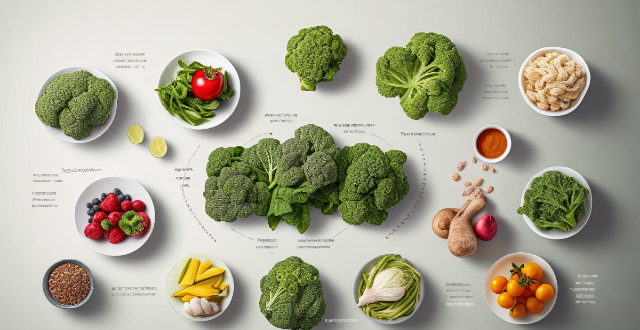Yes, there are specific diets that can enhance exercise efficiency. These include a high-carbohydrate diet for energy, a low-fat diet for weight management and cardiovascular health, a high-protein diet for muscle recovery and maintenance, and a plant-based diet for optimal nutrient intake. Examples of foods in each diet category are provided, along with the benefits they offer for exercise efficiency. It is recommended to consult with a healthcare professional before starting any new diet plan.

Are there any specific diets that enhance exercise efficiency?
Yes, there are several specific diets that can enhance exercise efficiency. Here are some of them:
1. High-Carbohydrate Diet
- Definition: A high-carbohydrate diet includes foods that are rich in carbohydrates, such as whole grains, fruits, and vegetables.
- Benefits for Exercise Efficiency: Carbohydrates provide energy to the body, which is essential for physical activity. A high-carbohydrate diet ensures that your body has enough fuel to perform exercises effectively.
- Examples: Brown rice, sweet potatoes, quinoa, apples, and bananas.
2. Low-Fat Diet
- Definition: A low-fat diet consists of foods that contain minimal amounts of fats, particularly saturated and trans fats.
- Benefits for Exercise Efficiency: Consuming less fat helps reduce body weight and improve cardiovascular health, making it easier to engage in physical activities.
- Examples: Skinless chicken breast, fish fillets, skimmed milk, and lean cuts of beef.
3. High-Protein Diet
- Definition: A high-protein diet involves consuming foods that are rich in protein, such as meats, dairy products, and plant-based sources like beans and lentils.
- Benefits for Exercise Efficiency: Protein helps build and repair muscles, which is crucial for recovery after workout sessions. It also aids in maintaining muscle mass during weight loss.
- Examples: Grilled chicken, tofu, eggs, Greek yogurt, and cottage cheese.
4. Plant-Based Diet
- Definition: A plant-based diet focuses on consuming foods derived from plants, including fruits, vegetables, whole grains, legumes, nuts, and seeds.
- Benefits for Exercise Efficiency: This type of diet provides a wide range of nutrients needed for optimal performance, such as vitamins, minerals, antioxidants, and fiber. It also helps maintain a healthy weight and reduces the risk of chronic diseases.
- Examples: Broccoli, spinach, kale, blueberries, almonds, chia seeds, and quinoa.
In conclusion, incorporating these specific diets into your lifestyle can significantly enhance your exercise efficiency by providing the necessary nutrients and energy required for physical activities. Remember to consult with a healthcare professional or a registered dietitian before starting any new diet plan to ensure it meets your individual needs and goals.